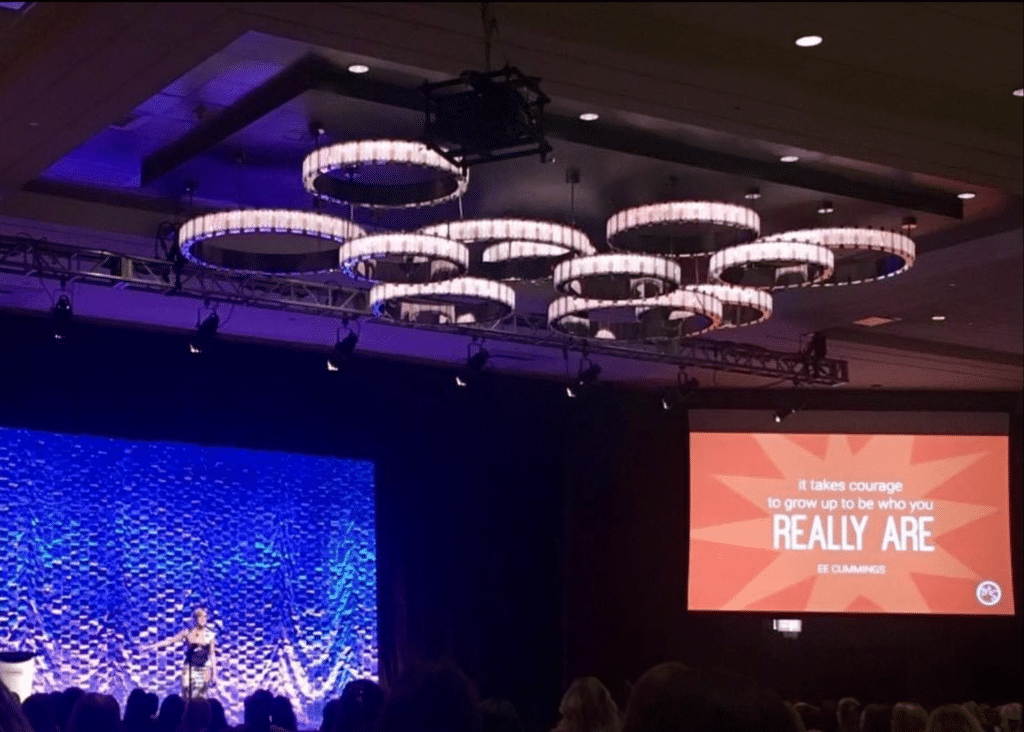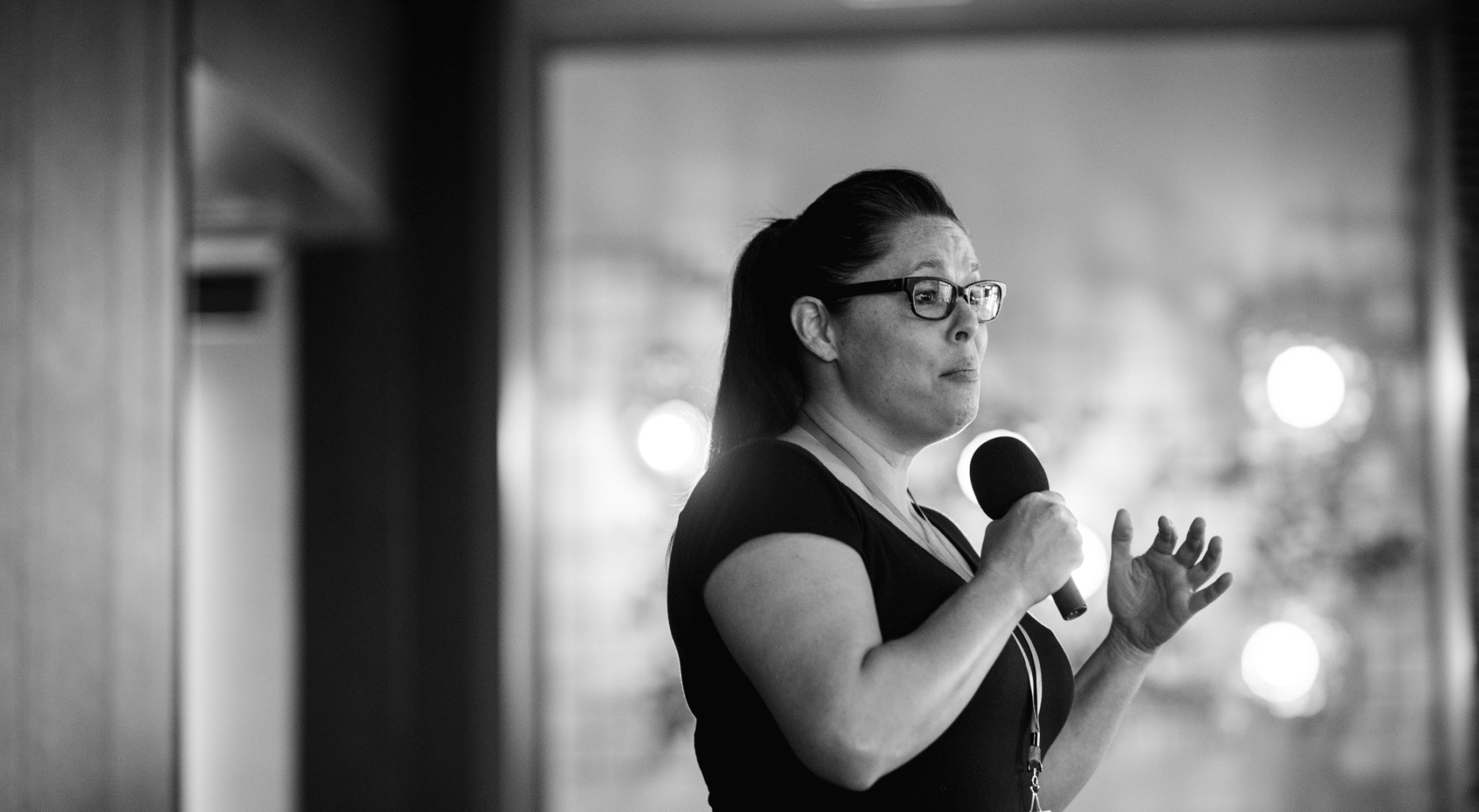
“But what if they get mad at me for telling that story?”
When you were a kid, you had parents and siblings who were involved in your story – good and bad.
When you were in school, things happened with lots of other people around.
When you got divorced, there was a significant other and maybe even kids involved.
When you lost your job, other people were involved in that process.
When you started a business, you didn’t do it alone.
And when you went to therapy to figure out how to handle all of it, you didn’t just talk about yourself.
So, why do we feel like we can’t share stories that involve other people?
A few years ago, I started sharing the story of my relationship with my mom. It wasn’t a pretty story. It wasn’t an easy story. It was a story of a hurting woman who raised a little girl into a very independent woman – and how we didn’t get along for 35 years. We stopped talking altogether in my early 30’s because of how painful our story had become – and it got even more painful before it got better.
When I got on stage to share that story for the first time, it was in front of 500 women in tech. I shared the very emotional story of where we had been and then how we both decided to be grown-up women and leave the past in the past. To leave the past where it needed to be left and move forward together as adults. And how much that has changed us both for the better.
I didn’t ask my mom for permission to share that story – yet she was sitting in the front row of that audience. Listening to me tell it for the first time. In front of 500 other women.
When I finished our story and shared that she was in the front row, they wouldn’t stop clapping. The women in that audience walked up to meet her, hug her, shake her hand, and tell her how inspirational the story was. They told both of us that our story gave them hope – for their mothers, their daughters, their granddaughters – and the healing that could happen.
It was a story that involved my mom – but it was my story to tell.

I get asked for permission a LOT. People want permission to share stories about the things that have happened in their own lives. They want permission to dig deep and FEEL their own stories. They want permission to cry when they tell their stories. They want permission to not care what others think about their stories. They want permission to share a story without a “happily ever after.”
And the biggest permission of all? To tell the stories that changed them the most.

When I read this Anne Lamott quote, I laughed out loud. Not because it was funny, but because it was true. THEY SHOULD HAVE BEHAVED BETTER.
That person who hurt you so badly – the one who wrecked you to the point that you made a decision to be nothing like them? They don’t need to give you permission to share how they hurt you. It’s YOUR story.
That person who said horrible things to you in school and made you decide you weren’t ever going to be like them? They don’t need to give you permission to share how they changed your life. It’s YOUR story.
That person who left you with scars – physical and emotional? They don’t need to give you permission to share how you got them. It’s YOUR story.
That person who broke your spirit and told you that would never make anything of yourself? They don’t need to give you permission to share how you finally squashed their voice. It’s YOUR story.
That person who was such an inspiration to you and gave you hope for the future? They don’t need to give you permission to share how you became a better person because of them. It’s YOUR story.
Some people wait until the person dies before they’re willing to share the real story. Someone reading this right now knows that they won’t include “that story” in their talk or their book until the people who hurt them are no longer on this earth.
Why? Are you afraid to hurt them?
Let me ask that another way.
WHY ARE YOU AFRAID TO HURT THEM?
Storytelling isn’t about vindication, it’s about truth.
Storytelling isn’t about hurting other people, it’s about healing other people.
Storytelling isn’t about getting back at someone, it’s allowing someone to see that you’ve been there, too.
Storytelling isn’t about telling on other people, it’s about telling other people that you understand.
Your story is your story. Period.
Sure, use some tact when telling a story about someone who hurt you. Maybe change some names or dates or places so that you don’t destroy another person’s life (I mean, unless they deserve it, then all bets are off.)
Get therapy before sharing your painful story on a stage so you don’t end up a blubbering mess (crying has its place on stage, but doing your therapy session live isn’t one of them.) Maybe even forgive them before you share the story that involves them (to their face or just to yourself.)
Just remember – it’s YOUR story.
I shared the story of my journey through life with my mom and how it changed us both for the better. That story has healed more people than I will ever know. It’s changed relationships between mothers & daughters. And it’s even made my relationship with my mom stronger. It wasn’t easy to share at first, but goodness, I’m so grateful I finally did. I’d have done a huge disservice to the two of us and the world if I hadn’t.
Everything that happened to you AND for you is shareable. It happened so you can share it and allow another beautiful human to learn from it, heal from it, or just move forward because of it. Don’t do yourself or the world a disservice by keeping it to yourself.
IN CASE YOU NEED IT: You have FULL permission to share your story.
Now, it’s up to you to share it.
Drop a comment below & tell me what story YOU will share now that you have full permission:






